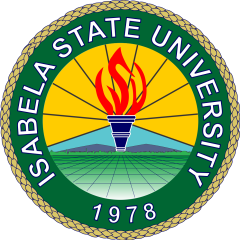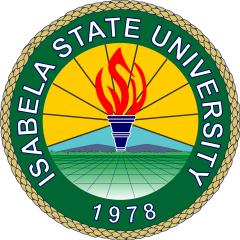Cagayan Valley Cacao Development Center (CVCDC)
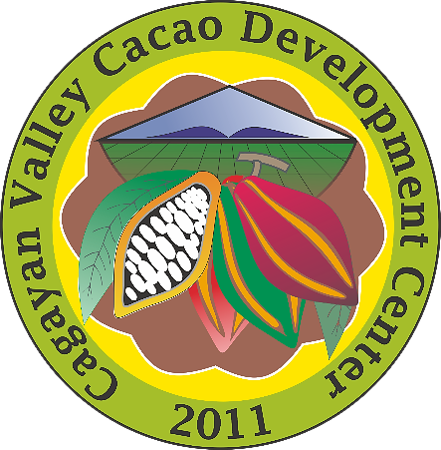
The center came into existence with the approval of the Board of Regents during its meeting held at ISU Cauayan Campus on June 09, 2011. It is dedicated to continuously undertake research and development to generate cacao technologies considering related problems on cacao production, processing, and utilization. The center also provides cacao farmers/growers a package of technology through conduct of capability building and extension work. To date, approximately 1,567 cacao farmers have been reached out through CVCDC since 2015 and a number are already into cacao processing as well.
The existence of the CVCDC will be greatly enhanced by the presence of the state-of-the- art cacao processing center cum conference/training hall. It must be noted that the various cacao products already developed at the Center have made the University as recognized processing center in Cagayan Valley and it is worthwhile to mention, that most of the cacao products garnered the Certificate of Registration, Utility Model awarded by the Intellectual Property Office, Taguig City.
Furthermore, the CVCDC is committed to promote excellence through the development of cacao related technologies from propagation and production to processing and marketing that are socially, environmentally and culturally feasible both at the local, national and world markets.
Equipment Manufacturing Cluster Center (EMCC)

The Equipment Manufacturing Center aims to provide globally competitive Agro-Industrial Machineries, Equipment, Parts, and Service that would improve the quality of living of stakeholders/end-users. The center, in partnership with private institutions, has established the Equipment Manufacturing Cluster Center in Region 2 to foster fabrication and inventiveness in the region. The Center has a strong partnership with the Department of Science and Technology in providing support and assistance and the sharing of the unique strategy from MIRDC to improve productivity and competitiveness of MSMEs in the Metals and Engineering in the region called CREAMM (Clustering of Regional Enterprises for Agro-industrial Machinery and Parts Manufacturing).
Climate Change Center Education on Research and Development (CCC-ERD) / Geomatics for Sustainable Development Center

The Center’s vision is a Center of Excellence in climate change adaptation, mitigation and climate- risk resiliency in Cagayan Valley, the country, and the ASEAN region. It is committed to exist as a self-sustaining holistic functional service and capacity-building facility on climate change R&D providing climate change adaptation, mitigation and disaster risk reduction education and expert services to various clients and utilizing science-based information/technology in addressing climate change all geared towards climate-risk resiliency.
Cagayan Valley Small Ruminant Research Center (CVSRRC)
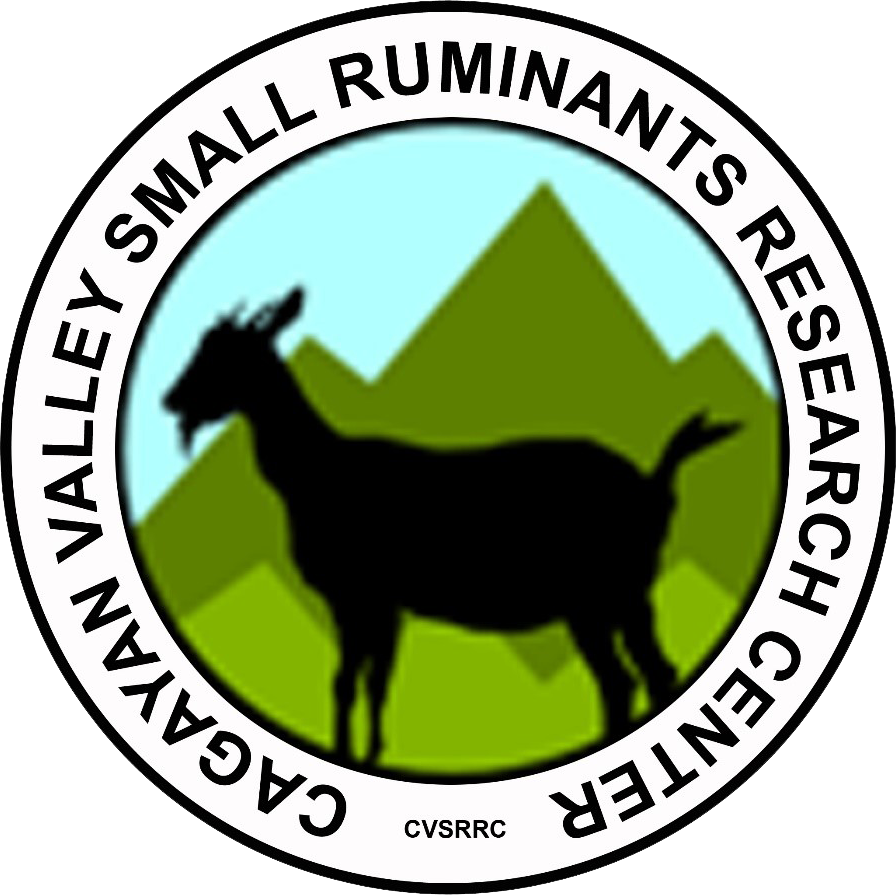
The Cagayan Valley Small Ruminants Research Center is mandated to lead the conduct of research and extension activities to promote sustainable goat and sheep raising activities. Its goal is to turn the raising of small ruminants from a subsistence farm activity into a profitable business based on livestock.
The center has on-going projects funded by the DOST-PCAARD, namely: Innovative systems in advancing technology-based goat production program (with 6 projects); DOST-PCAARRD-ISU Technology Business Incubation (TBI) Project; and Evaluation of the production performance and egg quality of ITIK Kayumanggi in selected duck egg production regions.
Through its Director, Dr. Jonathan N. Nayga, the Cagayan Valley Small Ruminant Research Center has signed agreements with various individuals and businesses as incubates under the DOST-PCAARRD-ISU Technology Business Incubation (TBI) Project. The main purpose of these agreements is to provide technical assistance, help the incubatees market their products by making infomercials and other marketing materials, and help them set up partnerships, linkages, and marketing to help them grow their businesses. The following are some of the successful incubatees of the center:
- Aquchickboy, represented by its President, Mr. Rofel P. Gamiao of San Mateo, Isabela, for his business Aquchickboy for ITIK PINAS production and product development;
- MJ Health Product, of Santa Fe, Nueva Vizcaya, represented by its President, Ms. Marjel Cuyangan, for making herbal teas;
- Agricomponent Corporation, which has an office in Tagaran, Cauayan City, Isabela, for the processing of chevon products and for letting the incubatee use the integrated slaughterhouse and meat processing facility;
- Avryl’s winery with a business address at Tagaran, Cauayan City, Isabela, for producing fruit wines.
Water Research and Development Center (WReDC)
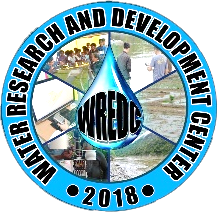
The Philippines now has the second lowest supply of water per capita in the ASEAN region despite abundant rainfall due to poor infrastructure and management (NEDA-PIDS, 2015).
The quality of water resources has been increasingly subjected to pollution from untreated sewage, industrial wastes, livestock wastes, agro-chemicals, and sediments that end up in water bodies and aquatic ecosystems, reducing the effective supply of water to meet the different types of water demands (Chico River Report, 2004).
The two main causes why Cagayan Valley remains underdeveloped are: 1) inundations at the tributaries and flood plains with great loss of lives and properties; 2) water inadequacies in irrigation and domestic water supply affecting both the local and national economies (Cagayan River Master Plan, 2013).
Thereby, in response to the above mentioned challenges on water security, a University-based water center for Cagayan Valley region was established to lead collaborative R&D/E efforts among NGAs, academe, private, NGO and other stakeholders in the sector.
Freshwater Fisheries Center (FFC)
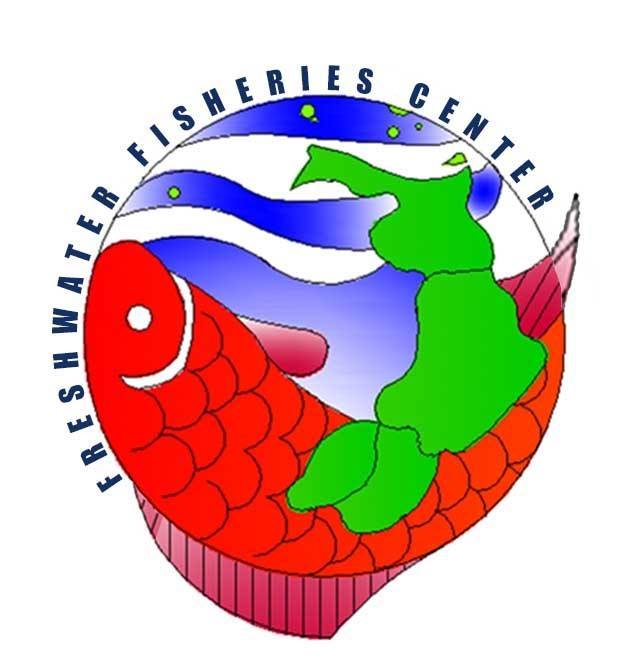
The Freshwater Fisheries Center as one of the first NICER Programs in the Philippines under the Science for Change (S4C) Program of the Department of Science and Technology (DOST) being monitored by the Department of Science and Technology – Philippine Council for Agriculture, Aquatic and National Resources Research and Development (DOST-PCAARRD).
FFC is committed to generate research outputs and innovations that shall be adopted and commercialized to significantly contribute in the development of a sustainable freshwater fisheries industry in the country and in the ASEAN Region. Its vision is to be a leading Freshwater Fisheries R&D Center in the Country and the ASEAN Region.
FFC was awarded with Plaque of Recognition during the 39th Founding Anniversary of Isabela State University, Gawad Pagkilala given by the Department of Agriculture – Bureau of Fisheries and Aquatic Resources (DA-BFAR) during the 58th Fish Conservation Week, Certificate of Recognition during the 41st Founding Anniversary as the Multi Awarded R&D Academic Institution, Plaque of Appreciation during the virtual evaluation for PCAARRD’s 2020 Ugnay Award, Plaque of Appreciation during the Packaging of Proposals on Eel and Tilapia Research, and garnered the 1st and 3rd Place in the Best Paper for Technical Research Category on October 2021.
Completed Researchers conducted by the FFC includes the Utilization of Plant-Based Antioxidants for Farmed Tilapia, Conservation and Artificial Spawning of “Ludong” Lobed-River Mullet Cestraeus plicatilis, Utilization of Aquatic Plants as Immunostimulants for Freshwater Eel Culture, Amaranthus spinosus Leaf Meal as Potential Protein Source for Nile Tilapia, Survey of Antimicrobial Use (AMU) in Milksfish Aquaculture in the Philippines, and Preliminary Data Assessment on Status of Freshwater Fisheries in the Philippines.
At present, FFC entered into collaboration with various institutes and organizations such as USC and Philippine Council for Agriculture, Aquatic and Natural Resources Research Development (PCAARRD), University of San Carlos, Bureau of Fisheries and Aquatic Resources-Region 2 (BFAR-R02), Department of Science and Technology (DOST), Network of Aquaculture Centers in Asia-Pacific (NACA).
Cagayan Valley Cattle Artificial Insemination Research and Training Center

The University continues to pursue knowledge-based and product development as a result of research and breakthroughs in science and technology, engineering, agriculture, ecology, culture, and the arts for environmental protection, progressive industry, human development, and sustainable living.
The University, through the Cagayan Valley Cattle Artificial Insemination Research and Training Center, signed an agreement with CHED on the program titled:’’ Development of Sustainable Livestock-based Rural Enterprises in Cagayan valley: A CHED-ISU-SLGU-Industry Partnership in Technology Commercialization and Entrepreneurship Development”. CHED grants ten million pesos to the university to promote and uplift the quality of HEIs offering agriculture and fisheries in the country.
TThe Center also signed a Memorandum of Agreement with the National Dairy Authority (NDA). The agreement covers the joint undertaking between ISU and NTA for the establishment, operation, and services to be offered by the National Dairy Cattle Breeding and Artificial Insemination Center. The NDBAIC and other facilities must be built and established on at least 10,000 square meters of land within the University’s boundaries.
TThe University’s Artificial Insemination (AI) Center and Cacao Processing Center have partnered with the Bureau of Agricultural Research (BAR) for the acquisition of modern laboratory equipment and for the construction and renovation of research facilities. The two centers were funded by BAR through its Institutional Development Grant (IDG), one of the programs of the bureau that strengthens the R&D capabilities of research-implementing institutions by providing funding support.
The Artificial Insemination Center aims to enhance the quality of beef and cattle products produced in the Cagayan Valley, which produces an average of 184,000 cattle per year. The Cacao Processing Center, on the other hand, will help improve the value chain of cacao products made in Isabela and help them reach more markets in the nearby areas.
Smart Water Infrastructure and Management Center

The program aims to improve water resources management through integrated water resources management approach and use of science tools for sustainable development. Specifically, the R&D Center intends to accomplish the following objectives:
1. Develop a science-based comprehensive water resources assessment and implementation framework for design of projects, planning and policy/decision making and intervention in basin scale;
2. Develop and mainstream climate resilient-smart flood mitigation and remediation measures using advance science tools for design and demonstration in flood prone communities;
3. Develop a GIS-based decision support tool in managing urban water infrastructure with storm water intervention;
4. Develop a low-cost smart water control infrastructure for effective on-farm irrigation water management; and,
5. Implement institutional support mechanisms for sustainable mainstream of R&D products to stakeholders.
